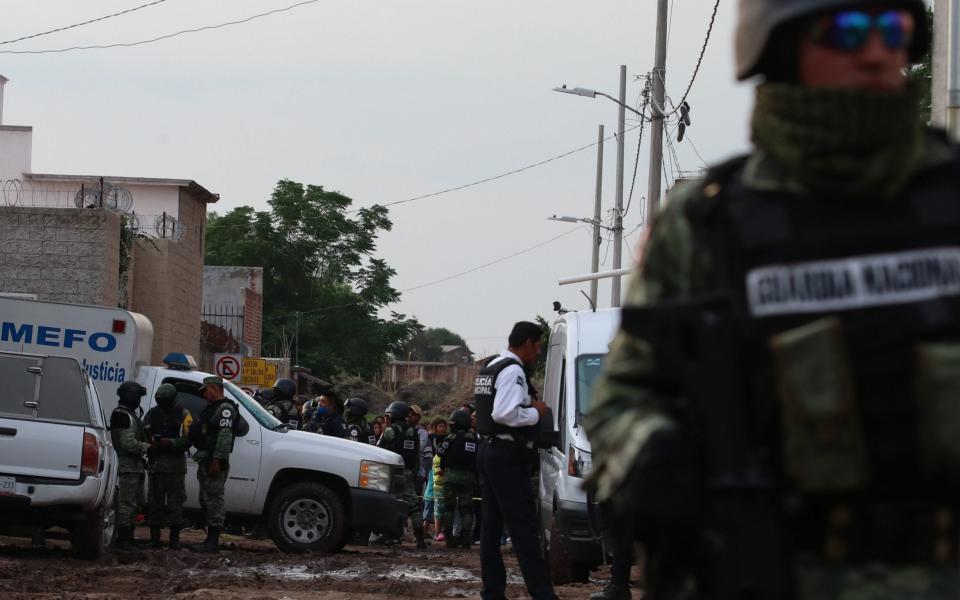Mexican cartel kills 24 in drug rehab as battle for control extends to addicts of rival gangs

Heavily armed commandos arrived at the unregistered drug rehab center in the small city of Irapuato, Mexico at around 6pm on the first day of July. They forced their way in and opened fire, shooting indiscriminately at the young people inside, many of them drug addicts trying to start over. They killed 24 people and left a further seven alive but injured.
The incident – one of the deadliest in Mexico’s ongoing crime wars since President Andres Manuel Lopez Obrador took power in late 2018 - highlights the ongoing rivalries of the country’s powerful criminal armies in what is one of the most violent states in the country.
“The violence generated by organized crime doesn’t just take the lives of our youths, it robs peace from families in Guanajuato,” said the state governor Diego Sinhue Rodríguez Vallejo via his Twitter account.
But peace has long been absent in Guanajuato. Located in the middle of Mexico, it is a vital trafficking corridor for criminal organisations moving drugs towards the US-Mexico border. In recent years, the industrial corridor has also proved a battleground for cartels battling over lucrative local markets.
The consumption of the synthetic drug methamphetamine – a cash cow for Mexico’s cartels – is rife in Guanajuato. As a result, the city of Irapuato alone, home to some 600,000, is home to dozens of unregistered drug clinics, known in Mexico as ‘anexos’ that offer addicts the chance to kick 'cristal'. Some of these establishments genuinely help patients get off drugs, but others are little more than informal prisons, where the human rights of patients are ignored.
Territorial battles over street corner drug sales points are now extending to users, the owner of a different drug rehab clinic told The Telegraph on condition of anonymity. Gangs are demanding that consumers buy cristal, as meth is called there, from them and them alone: buying from rival gangs will be punished by acts such as the latest shooting.

In June, a further ten men were killed in Irapuato at a different shooting at a drug clinic in the city.
A taco seller used to sell here in the street and a gang approached him and told him he could only sell for them and couldn’t sell drugs for the other gang… they killed him eventually,” said the source.
Guanajuato is being contested by the Santa Rosa de Lima Cartel and the New Generation Jalisco Cartel – arguably Mexico’s most aggressive and fast-growing criminal organization. As well as lucrative drug markets in the state, the theft of petrol for sale on the blackmarket from gas pipelines that the cartels perforate and siphon is also a huge business.
In the last year, the authorities have cracked down on the Santa Rosa de Lima Cartel (CSRL) and its leader, José Antonio Yépez Ortiz, also known as 'El Marro' (the Sledgehammer), arresting a number of its members. Local press reports also suggest that both the mother and father of the alleged crime boss were arrested, although subsequently released, by the authorities.
“El Marro was protected by the government, but now no,” said the source at the drug clinic in Guanajuato.
“El Marro doesn’t have enough sales points here in Irapuato, but he used to control the city. He lost it. This is a way of sowing fear amongst people here – people are going to start taking their family members out of these clinics now.”


